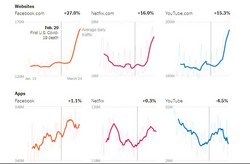Every so often, a new catchy phrase or saying will enter the vocabulary of hundreds of millennials, college students and teenagers nationwide. Words like “yolo” find their way into daily conversations without a second thought. Recently, “adulting” has become the new thing to say when talking about responsibilities like going to work, paying bills or simply growing up. This generation of college students and recent grads have begun glorifying everyday tasks and occurrences that come with growing up by using the term “adulting.” This notion and the ideas associated with it allude to the idea that everyday responsibilities are trendy, and that college students want to be celebrated for going about everyday tasks.
Many people use the term jokingly to talk about their daily tasks to give them a fun spin on something otherwise boring and commonplace. While the word has struck up some controversy, many twenty-something’s enjoy using it in a laughable manner. Senior business student Stephanie Merlis explained why she enjoys using this word: “It’s a fun word to use because it’s almost comical in the sense that seniors in college are ‘adulting’ as we begin to search for paid internships and full time jobs, but really we aren’t in the adult world yet.”
Perhaps college students and recent grads use this idea to help distance them from those who are fully immersed in the adult world. Merlis continued, “I have an internship now but I’m still working towards getting my degree, so in a sense I’m not an adult. I don’t work 9-5 or have benefits and 2 weeks of paid vacation time. So I like using the term because I can connect with those in the real world, without actually becoming a part of it myself.”
While some find the phrase to be comical and harmless, others blatantly disagree. Junior nursing student, Shaheen Grajeda rejects this notion of adulting, having stated “I really dislike hearing people use this term all the time, especially over stupid things. My friends will go grocery shopping or pay bills and say ‘I hate adulting,’ or ‘I can’t adult today,’ and it’s frustrating because these are just everyday occurrences. She continued, “I think in a sense it glorifies the idea of growing up, because people use it as to show off that they can do things on their own.”
Many use adulting in their everyday vocabulary to show off that they are doing something worth celebrating, when in actuality it’s an everyday responsibly, task or errand. After scrolling through the hashtag on twitter, millennials frequently use “adulting” to publicly praise themselves for doing things like making their own doctors appointments, purchasing healthy food and of course, going to work and paying bills.
We have yet to see young teenagers entering their high school years approach new responsibilities in the same way college students do, because, “I got my locker to open today on the first try #High-schooling” sounds just as ridiculous as “I have to get up at 8am for my internship everyday #Adulting” does.
It’s easy to understand why our generation has this particular attitude towards growing up: we are the trophy kids. Those who were born in within 1980 and 2001 have been pinned as the “trophy children” and have led many to publish books and scholarly articles about the effects of participation trophies, constant reaffirmation and parents coddling have on the lives of those individuals. The main theme of the trophy generation is that children were being rewarded and celebrated for simply participating in activities like sports– much like the self-congratulations the term “adulting” has when talking about responsibilities or work.
In the same sense that many were rewarded for participating, regardless of winning or losing, we are now beginning to reward ourselves for the accomplishment of everyday tasks and responsibilities. While there may not be a direct correlation to the trophy phenomenon and the use of “adulting,” they go hand and hand; both rewarding something that doesn’t necessarily need praise.
When the adulting, trophy children find themselves in the “real world” they are not going to be praised by higher ups for going to a meeting or completing an assignment with a congratulatory “you adulted” hi-five. So if people, or adults rather, do not acknowledge the notion of adulting themselves, what does that say about the millennial’s who do?
While you won’t find adulting in the special skills section on anyone’s resume (or at least I hope not), using this lingo is still just as damaging to our future employers perception of this generation. Articles have been published in the Huffington Post and Time Magazine about the negative effects this word has; so clearly, it cannot be all that harmless. While it is meant to be very lighthearted and comical, we as a generation are damaging our credibility, sense of self and seriousness to future employers. Saying “adulting” doesn’t only undermine our talents, it alters our superiors’ perception of us and gives off the impression that we cannot handle serious assignments.
Kristine Simoes, a specialist professor of communication, shared her feelings towards this lingo. “At some point in your early twenties, your personal brand becomes your professional brand. How you market yourself on social media and in person directly correlate to how others will perceive you to be in your profession. Business professionals are not going to take you seriously if they see you hashtagged ‘adulting’ when you made yourself dinner. Millennial’s need to think about what kind of impression they leave and what kind of brand they are creating for themselves when they use this unnecessary language.”
This trend has skyrocketed and has even found its way into the mainstream market. Women’s accessory stores like Icing sell merchandise like mugs and phone cases with the saying “I can’t adult today” plastered on it. In the same sense that millennials use it to self-congratulate, many use it to acknowledge the fact that the adulting tasks, such as going to work or paying a bill, are too exhausting to accomplish that they need to purchase something to let the world know. So if you’re asking yourself why this new lingo is finding its way onto accessories, and in hundreds of twenty-something’s vocabulary, its because #Adulting looks better on twitter (and on a mug) than #Existing. Just as other catchy phrases and words died down, I’m sure society will move past the word “adulting” as well. But for now, millennials will keep on adulting until we all actually grow up.
PHOTO COURTESY of Clare Maurer..




